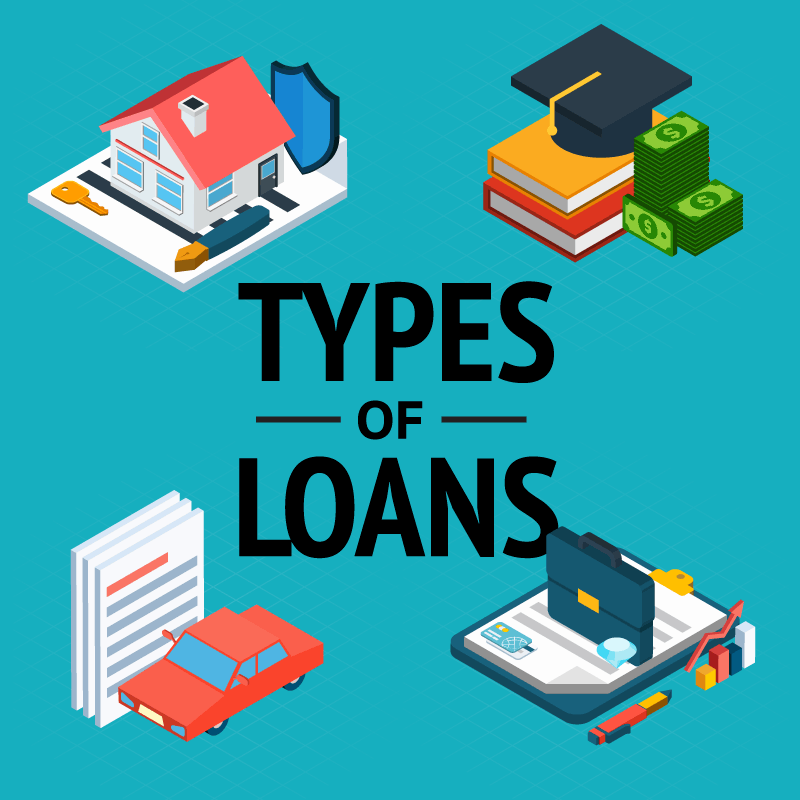Discover dependable Installment Loans that fit your budget
Wiki Article
A Comprehensive Guide to Home Loans: Solutions and Options Explained
Charting the world of home finances can be intricate. Numerous options exist, each with unique attributes and ramifications for potential homeowners. Comprehending the differences between government-backed and standard financings is essential. The application process includes careful paperwork and pre-approval steps that numerous neglect. As borrowers start on their home-buying trip, understanding how to handle these responsibilities successfully might suggest the distinction in between financial stability and challenge. What strategies can encourage them on this course?Understanding Home Loans: Types and Terminology
Understanding the various sorts of home financings and their associated terms is vital for prospective home owners, as it outfits them with the knowledge needed to make enlightened monetary choices. Home mortgage can be extensively categorized into adjustable-rate and fixed-rate mortgages. Fixed-rate home loans preserve a constant rates of interest over the life of the financing, supplying stability in regular monthly payments. Fast Cash. Conversely, variable-rate mortgages include rate of interest that might fluctuate after an initial fixed period, potentially bring about lower initial repayments yet boosted future pricesExtra terms is essential for clarity. Principal describes the car loan amount obtained, while passion is the cost of loaning that quantity. The term of the loan suggests its period, usually varying from 15 to 30 years. Understanding these fundamental ideas allows possible customers to navigate the complex landscape of home financing, guaranteeing they pick the ideal car loan option that straightens with their monetary situation and long-term goals.
Traditional Lendings vs. Government-Backed Loans
A substantial difference in home financing exists between conventional finances and government-backed loans, each accommodating various consumer needs and scenarios. Standard finances are not guaranteed or assured by the federal government and normally need higher credit report and deposits. They are frequently interesting debtors with steady financial histories, as they might offer affordable rates of interest and terms.On the other hand, government-backed loans, such as FHA, VA, and USDA finances, are designed to help details groups of consumers, including new property buyers and experts. Cash Advance. These finances usually include lower deposit demands and even more versatile credit rating requirements, making them easily accessible to a broader array of individuals
Eventually, the option in between government-backed and standard lendings hinges on the borrower's monetary situation, long-lasting objectives, and eligibility, making it important to thoroughly review both choices before making a choice.

The Duty of Rate Of Interest in Home Funding
Passion prices play a crucial duty in home funding, affecting borrowers' decisions between variable and set rate car loans. The selection between these options can considerably influence monthly payments, impacting total cost. Comprehending exactly how rate of interest operate is crucial for anybody maneuvering through the mortgage procedure.Fixed vs. Variable Prices
Homebuyers deal with a necessary choice when picking in between fixed and variable rates, as this choice significantly affects the expense of financing with time. Fixed-rate mortgages offer stability, securing an interest rate for the life of the financing, which can be helpful in a rising passion price atmosphere. This predictability permits homeowners to spending plan better. On the other hand, variable-rate home loans, or variable-rate mortgages (ARMs), generally start with reduced preliminary prices that can change based on market conditions. While this may lead to lower preliminary settlements, borrowers face the threat of raised prices in the future. Eventually, the choice in between variable and set rates depends upon individual financial scenarios, threat resistance, and assumptions pertaining to future rates of interest trends.Effect On Monthly Payments
When examining home funding options, the impact of rate of interest on monthly payments is a key element to consider. Passion rates straight influence the general cost of borrowing, impacting how much a customer will certainly pay every month. A reduced rate of interest rate lead to smaller regular monthly payments, making homeownership much more budget friendly. On the other hand, greater prices can greatly increase regular monthly commitments, possibly straining a house owner's budget. In addition, the funding term plays a vital role; longer terms might spread out repayments out yet can cause paying more interest with time. Understanding just how rate of interest communicate with finance amounts and terms is necessary for borrowers to make enlightened financial choices and select a home loan that straightens with their long-term economic objectives.Home Loan Brokers vs. Straight Lenders: Which Is Right for You?
When taking into consideration a mortgage, possible customers need to comprehend the distinct roles and duties of mortgage brokers and straight loan providers. Each choice provides its very own benefits and negative aspects, which can considerably affect the overall cost of funding. An enlightened choice calls for careful analysis of these aspects to determine the finest suitable for private requirements.Functions and Duties Defined
Navigating the intricacies of home financing requires a clear understanding of the functions and duties of home loan brokers and straight loan providers. Mortgage brokers work as middlemans, linking customers with loan providers. They analyze a customer's monetary situation, curate funding options, and guide clients with the application procedure, typically leveraging numerous lending institution connections to safeguard favorable terms. Alternatively, straight loan providers, such as banks and lending institution, give car loans straight to consumers. They take care of the entire loan procedure, from application to financing, with a focus on their own items. Each option offers distinct avenues for getting funding, making it vital for debtors to evaluate their choices and demands when choosing in between involving a home loan broker or dealing with a direct loan provider.Cons and pros Comparison
Choosing in between a mortgage broker and a straight lending institution can considerably influence the home funding experience, as each choice uses one-of-a-kind benefits and drawbacks. Mortgage brokers function as middlemans, supplying access to multiple lending institutions and possibly better rates, while simplifying the finance process. Nevertheless, they might charge costs and depend on commission structures that might influence their referrals. On the other hand, direct loan providers simplify the process by using in-house car loans, which can lead to much faster authorizations and less problems. Conversely, they may have a limited option of items and much less flexibility relating to rates. Eventually, the decision pivots on private preferences, financial scenarios, and the wanted degree of assistance throughout the home loan trip.Cost Effects Assessed
While reviewing the cost implications of mortgage brokers versus direct lending institutions, potential property owners should take into consideration numerous variables that can significantly affect their overall expenditures. Home loan brokers commonly bill costs for their solutions, which can vary considerably, affecting the general loan expense. Nevertheless, they often have accessibility to a wider array of loan items and competitive rates, possibly saving debtors money in the lengthy run. Alternatively, direct lenders may use a more straightforward procedure with potentially reduced upfront prices, yet their funding options might be limited. It is vital for home owners to contrast rates of interest, fees, and terms from both lenders and brokers, guaranteeing they make an informed decision that aligns with their economic objectives and demands.The Home Finance Application Process: What to Expect

The mortgage application procedure can often feel frightening for numerous candidates. It normally starts with collecting necessary documentation, including proof of income, credit score history, and personal identification. Lenders utilize this details to evaluate the candidate's financial security and establish financing qualification.
Next off, candidates send a formal application, which might involve submitting on-line types or supplying information face to face. Throughout this stage, lenders evaluate different variables, such as debt-to-income proportion and credit rating, to decide on lending terms.
When pre-approved, the loan provider will conduct a comprehensive appraisal of the building to ascertain its value lines up with the finance navigate to these guys amount. This stage might likewise include additional history checks.

After last authorizations and problems are met, the funding is processed, resulting in the closing stage. Recognizing each action encourages candidates, making the trip smoother and more workable as they click to read more move toward homeownership.
Tips for Handling Your Home Financing Properly
Successfully steering the home lending application process is just the start of a liable economic trip. Taking care of a home financing calls for focus to a number of essential techniques. Borrowers need to develop a clear budget plan that accommodates month-to-month home loan settlements, building tax obligations, and insurance. Regularly reviewing this spending plan assists avoid overspending and assurances timely payments.In addition, making extra repayments when feasible can significantly minimize the funding principal and complete interest paid with time. Borrowers need to also preserve open lines of interaction with their lender, specifically in times of financial trouble. This can result in possible solutions such as loan adjustments or re-financing alternatives.
It is recommended to monitor credit rating scores on a regular basis. An excellent credit history can give possibilities for better finance terms in the future. Cash Advance. By following these tips, homeowners can browse their lending obligations successfully, guaranteeing long-lasting economic health and wellness and security
Frequently Asked Concerns
What Are Closing Costs and Exactly How Are They Determined?
Closing expenses encompass fees related to finalizing a home loan, consisting of assessment, title insurance policy, and funding source fees. These costs usually range from 2% to 5% of the finance amount, varying based upon location and lending institution.Can I Get a Mortgage With Bad Credit Score?
Yes, people with bad credit scores can receive a home funding, though options might be restricted. Lenders commonly call for higher down payments or rate of interest, and discovering government-backed financings might enhance chances of authorization.What Is Mortgage Insurance policy and When Is It Required?
When a customer makes a down settlement of less than 20%, home loan insurance policy safeguards lenders versus default and is typically needed. It assures that loan providers recoup losses if the debtor stops working to settle the car loan.Just How Does Refinancing Work and When Should I Consider It?
Refinancing entails replacing a present home loan with a new one, generally to protect a reduced rate of interest or change car loan terms. Property owners should think about re-financing when rates of interest drop substantially or their financial circumstance enhances.What Happens if I Miss a Home Loan Payment?
If a home loan repayment is missed, the loan provider typically evaluates late charges, reports the misbehavior to credit bureaus, and may start foreclosure procedures if repayments remain to be ignored, at some point threatening the homeowner's residential property.Fixed-rate home mortgages preserve a constant rate of interest rate over the life of the car loan, offering stability Bonuses in month-to-month payments. A considerable distinction in home financing exists between government-backed finances and conventional car loans, each catering to various debtor demands and circumstances. In comparison, government-backed financings, such as FHA, VA, and USDA financings, are created to help particular groups of debtors, including new property buyers and professionals. Interest prices play a crucial function in home funding, affecting customers' choices between set and variable rate lendings. Fixed-rate home mortgages use security, securing in a rate of interest price for the life of the financing, which can be advantageous in a climbing passion price atmosphere.
Report this wiki page